 Yen Press has been doing well in terms of series that sell well and by catching attention with adaptations of popular properties. For my money, they also made one of their smartest choices was hiring Svetlana Chmakova to create a new series, Nightschool, for their magazine, Yen Plus. It’s as poised a supernatural adventure as you’re likely to find on the manga shelves.
Yen Press has been doing well in terms of series that sell well and by catching attention with adaptations of popular properties. For my money, they also made one of their smartest choices was hiring Svetlana Chmakova to create a new series, Nightschool, for their magazine, Yen Plus. It’s as poised a supernatural adventure as you’re likely to find on the manga shelves.
What immediately strikes me about the series is how sure-footed it is. Chmakova has assembled a crowded cast and a host of subplots, but nothing feels extraneous or self-indulgent. It’s indicative of just how memorable her characters are that I never felt the need to flip back through the first volume and remind myself of any particular details or developments while reading the second. She doesn’t burden the book with exposition or reminders, and things move at a clip, but Chmakova doesn’t leave readers behind in the process.
In spite of the crowd and the bustle, Chmakova has also managed to keep her protagonist front and center, at least in terms of reader perception. Alex, a young witch searching for her missing sister, is just right. She’s smart, resourceful and funny, and she’s also a little frightening. The second volume doesn’t go much further to revealing what her dark secret might be, but it reinforces just how formidable Alex is. As a nice bonus, Alex is such a force to reckon with because she’s worked hard to become so.
She’s not so formidable that she doesn’t seem at risk, though. Chmakova has arrayed a variety of forces in opposition to Alex, from snotty, secretive classmates to rival supernatural clans to self-appointed anti-monster vigilantes. Add that to the search for her missing sister and you have a young woman with a very full plate. Alex’s agenda doesn’t keep her from engaging with the world around her, though; there are some terrific, revealing scenes of Alex’s enrollment in the school where her sister taught that are sprinkled with comedy and menace, along with the introduction of even more new characters.
It’s just a very entertaining book, certainly for its skillful execution and partly for the pleasure of watching Chamkova juggle. Nightschool is drawn very well, and the dialogue is snappy, but the spectacle of Chamkova piling on this and that without ever letting things crush under the weight is as engaging as the story and presentation.






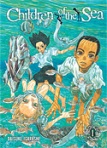



















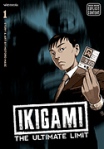
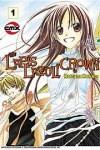


 It seems to be a week where publishers who’ve had something of a low profile lately deliver some new goods. There are new volumes from
It seems to be a week where publishers who’ve had something of a low profile lately deliver some new goods. There are new volumes from  Of more specific interest to me is
Of more specific interest to me is 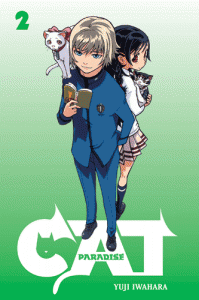
 It’s tough to pick a book of the week, as there’s interesting material in varied formats, but I ultimately have to settle on
It’s tough to pick a book of the week, as there’s interesting material in varied formats, but I ultimately have to settle on  Now, don’t get me wrong. I’m a fan of the books in Viz’s Signature line and an admirer of the imprint in general. I honestly can’t think of one I don’t at least enjoy. That said I do question the wisdom of unleashing quite this much product on the market at once. In addition to the aforementioned volume of Real, there’s
Now, don’t get me wrong. I’m a fan of the books in Viz’s Signature line and an admirer of the imprint in general. I honestly can’t think of one I don’t at least enjoy. That said I do question the wisdom of unleashing quite this much product on the market at once. In addition to the aforementioned volume of Real, there’s 
 I enjoyed
I enjoyed  I’m always happy to see more of Adam Warren’s brilliant
I’m always happy to see more of Adam Warren’s brilliant  It’s always wise to keep an eye on CMX’s shôjo offerings, as they’re usually pretty charming. New this month is
It’s always wise to keep an eye on CMX’s shôjo offerings, as they’re usually pretty charming. New this month is  A few years back, the big blogosphere hit was Jim Rugg and Brian Marucca’s
A few years back, the big blogosphere hit was Jim Rugg and Brian Marucca’s  You may know
You may know  I’m crazy about Rick Geary’s Treasury books, but I’m cheap so I wait for the paperback versions. Happily, NBM slates the soft-cover version Geary’s A Treasury of 20th Century Murder: Famous Players for publication. It examines the murder of early Hollywood director William Desmond Taylor. (Page 271.)
I’m crazy about Rick Geary’s Treasury books, but I’m cheap so I wait for the paperback versions. Happily, NBM slates the soft-cover version Geary’s A Treasury of 20th Century Murder: Famous Players for publication. It examines the murder of early Hollywood director William Desmond Taylor. (Page 271.) The gifted Hope Larson delivers her next work,
The gifted Hope Larson delivers her next work,  Page 301 promises more goodness from Viz Signature. My poor, poor wallet, how you will weep. New to the imprint are Natsume Ono’s
Page 301 promises more goodness from Viz Signature. My poor, poor wallet, how you will weep. New to the imprint are Natsume Ono’s  And, of course, Viz triggers squeals across the internet by offering more manga from Fumi Yoshinaga. It’s
And, of course, Viz triggers squeals across the internet by offering more manga from Fumi Yoshinaga. It’s 
 I have to admit that I have been unable to resist the lure of Marvel’s recent spate of quirky, off-brand titles featuring Patsy Walker, also known as Hellcat. This week’s example is
I have to admit that I have been unable to resist the lure of Marvel’s recent spate of quirky, off-brand titles featuring Patsy Walker, also known as Hellcat. This week’s example is  Dark Horse continues its CLAMP collection project with the
Dark Horse continues its CLAMP collection project with the  I’ve been meaning to read Makoto Tateno’s Yellow for ages, as it sometimes shows up on those lists of yaoi titles gay guys might like. DMP offers
I’ve been meaning to read Makoto Tateno’s Yellow for ages, as it sometimes shows up on those lists of yaoi titles gay guys might like. DMP offers  Oh, glorious day! Tokyopop finally releases the fifth volume of Ai Morinaga’s pointed and hilarious
Oh, glorious day! Tokyopop finally releases the fifth volume of Ai Morinaga’s pointed and hilarious 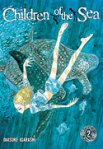 Viz has been inching me towards financial ruin for ages now, but they really give it their best effort this time around. There are the second volumes of Fumi Yoshinaga’s
Viz has been inching me towards financial ruin for ages now, but they really give it their best effort this time around. There are the second volumes of Fumi Yoshinaga’s